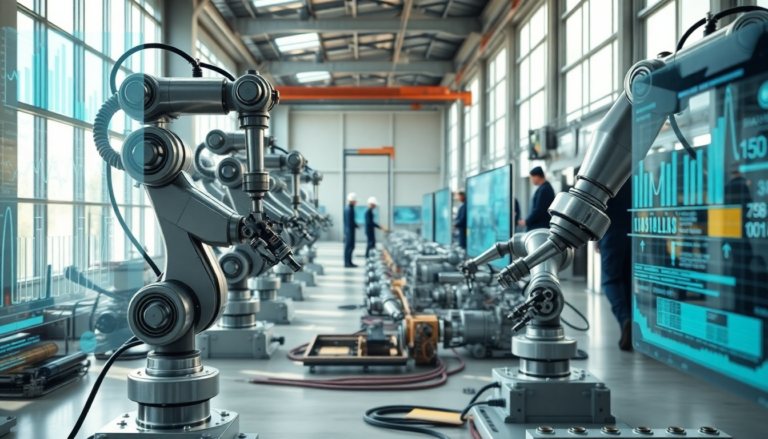Argomenti trattati
In today’s fast-paced manufacturing world, adaptive production is carving out a revolutionary path. This approach isn’t just about slapping a few upgrades on outdated systems; it’s a game-changer in how manufacturers operate. By tapping into the power of artificial intelligence, digital twins, and robotics, companies can create interconnected production facilities that go far beyond traditional automation. Imagine systems that can learn, adapt, and optimize in real-time—sounds impressive, right?
The Transformative Power of Adaptive Production
The impact of adaptive production on manufacturing productivity is nothing short of remarkable. Adopting this modern approach can catapult operational efficiency and innovation to new heights. But the benefits don’t stop at the factory floor; they ripple out into the community, promising local economic growth, better job accessibility, and a firm commitment to sustainability. As regions in North America and Europe ramp up their efforts to modernize manufacturing, integrating adaptive production techniques will be vital in tackling challenges—especially when it comes to attracting and retaining skilled talent.
Did you know that nearly 60% of manufacturers cite talent acquisition and retention as their biggest hurdle? With adaptive production, characterized by high levels of automation and technology integration, there’s hope on the horizon. By fostering safer, less monotonous, and more rewarding jobs, companies can draw in a new wave of workers. Simon Johnson, co-director of MIT’s Shaping the Future of Work Initiative, envisions a future where AI enhances human capabilities, creates new roles, and supports those at risk of job displacement due to automation. Isn’t that an exciting prospect?
Addressing Sustainability Challenges Through Digitalization
At the heart of adaptive production lies the digitalization of manufacturing processes. This digital backbone empowers organizations to tackle complex sustainability challenges head-on. By optimizing resources and analyzing data, companies can adopt a proactive stance toward sustainability. As Jelena Mitic, head of technology for the Future of Automation at Siemens, points out, integrating advanced technologies provides a holistic view of the production process and product lifecycle. This deeper understanding allows for quicker and more efficient optimization of operations while ensuring compliance with safety and sustainability standards during quality control.
But it’s not just about efficiency—adaptive production is also about aligning with broader sustainability goals. As manufacturers increasingly strive to lessen their environmental footprint, adaptive production equips them with the tools they need to streamline processes and reduce waste. This synergy between operational objectives and sustainability initiatives positions adaptive production as a crucial driver for tomorrow’s manufacturing environments.
Future Predictions and Potential Investments
Looking to the future, it’s clear that adaptive production will significantly reshape manufacturing practices. As companies continue pouring investments into advanced technologies, we can anticipate a shift toward more resilient and flexible manufacturing systems. The emphasis on real-time data and AI-driven insights will enable manufacturers to quickly pivot in response to market changes and consumer demands, creating a more dynamic production landscape. Exciting times ahead!
For investors, this transformation presents a wealth of opportunities. With adaptive production set to redefine the manufacturing sector, identifying key players and technologies within this space will be essential. Companies that embrace this shift and leverage adaptive production technologies are poised for substantial returns on investment, enhancing both their competitiveness and operational efficiency. By keeping a close eye on market trends and technological advancements, investors can strategically position themselves in the evolving landscape of manufacturing. Are you ready to take the plunge?

